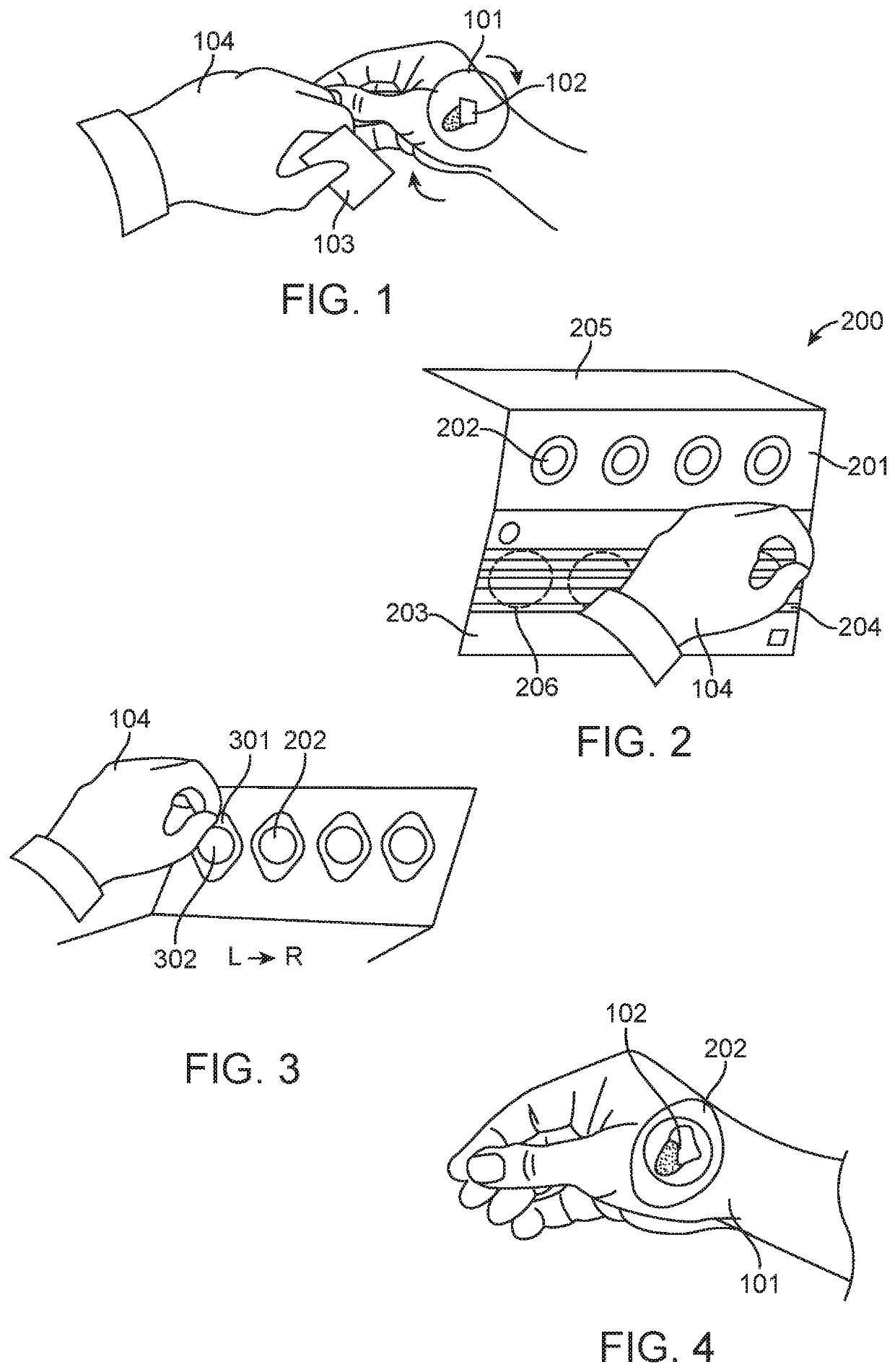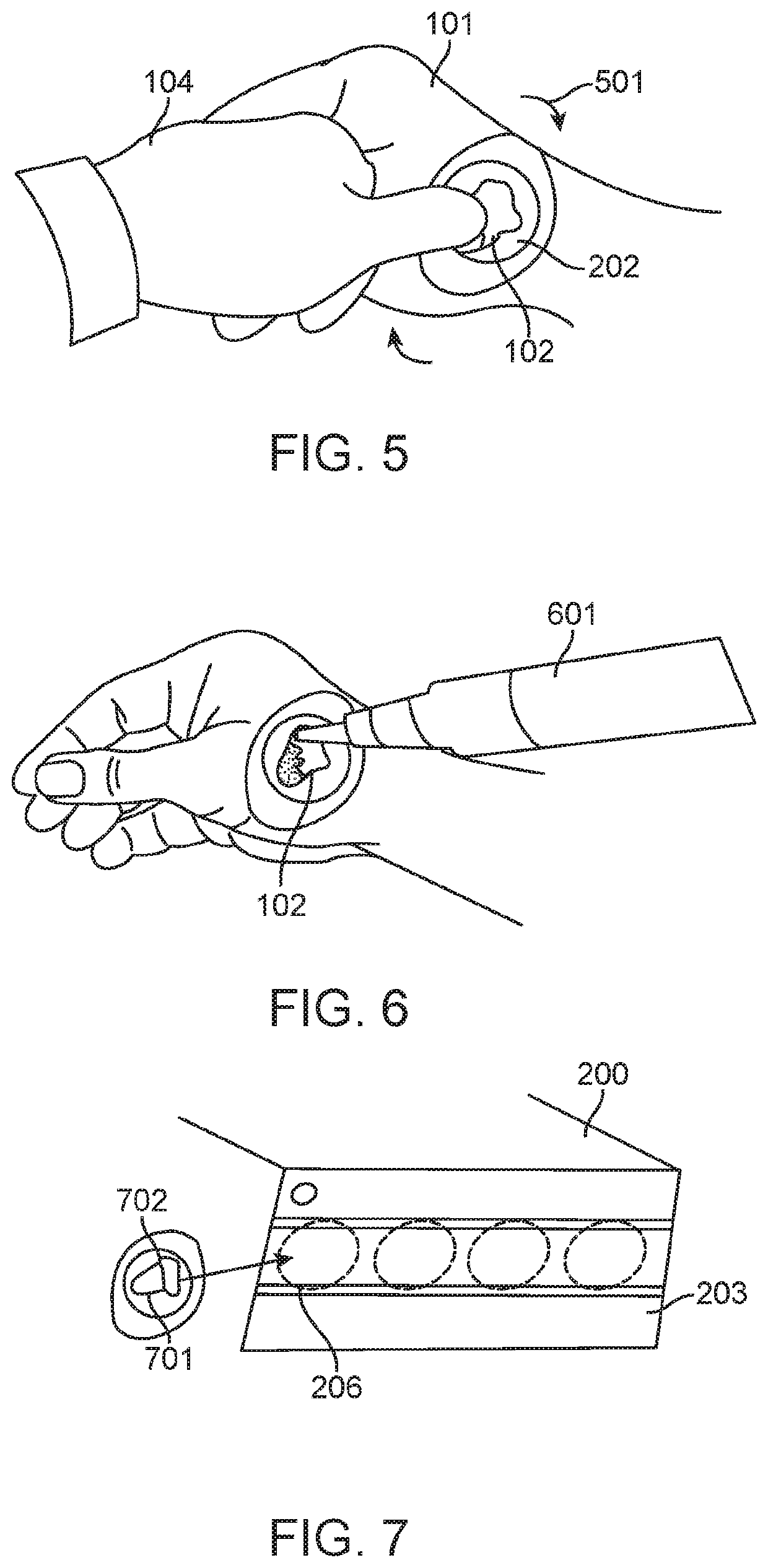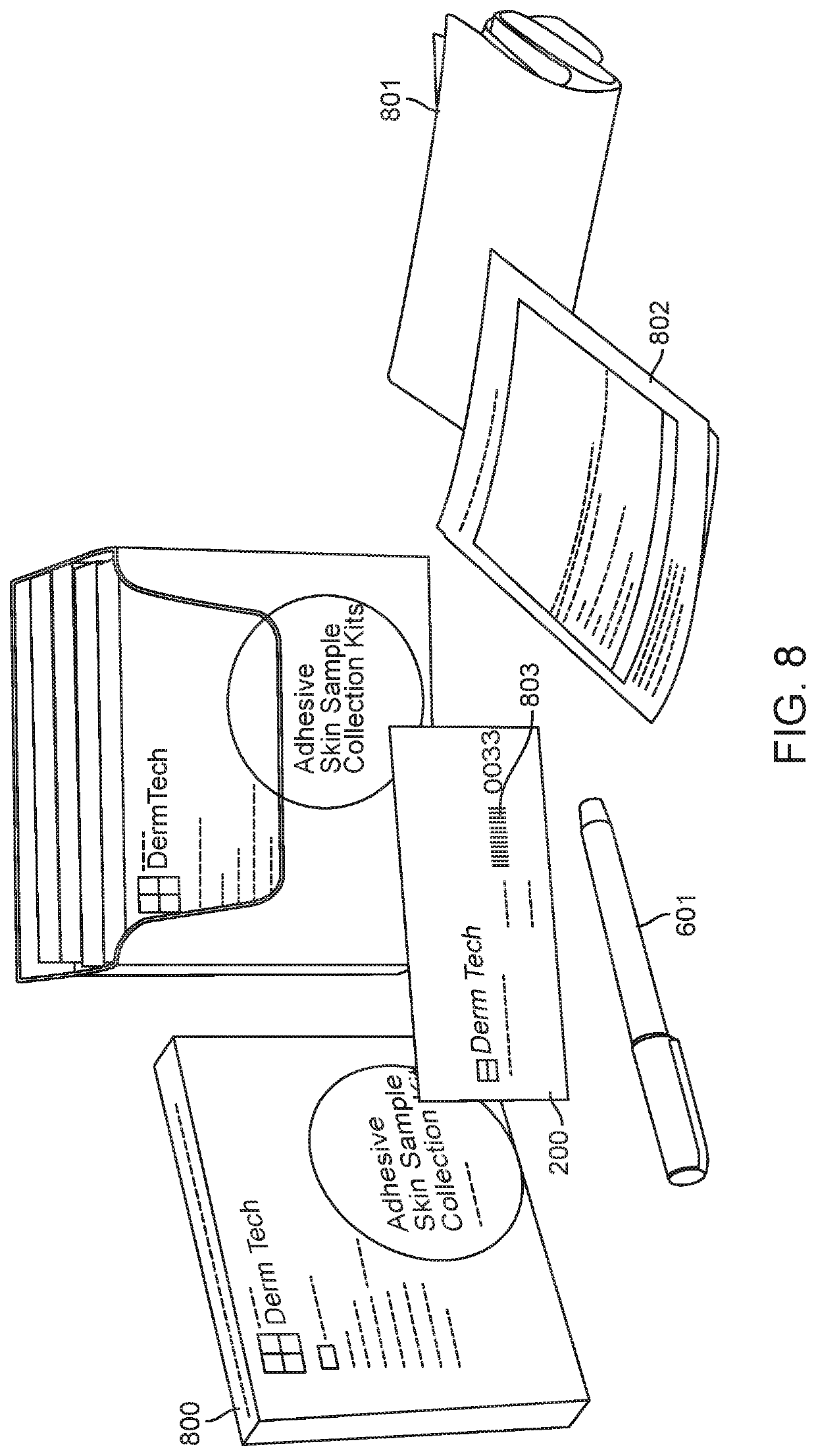Non-invasive skin collection system
a skin collection and non-invasive technology, applied in the field of non-invasive skin collection systems, can solve the problems of increased risk of metastasis, difficult visible observation and pathologic assessment of these lesions, and significant burden on the healthcare system of melanoma, so as to reduce the risk of metastasis, the effect of reducing the survival rate and high cos
- Summary
- Abstract
- Description
- Claims
- Application Information
AI Technical Summary
Benefits of technology
Problems solved by technology
Method used
Image
Examples
example 1
Care Skin Sample Collection
[0095]A pigmented lesion located on the hand of a subject is selected for skin sampling. The skin sampling area contains a minimal amount of hair, is not irritated and has not been previously biopsied. The lesion is about 8 mm in size. As exemplified in FIG. 1, the skin sampling area (101) comprising the skin lesion (102) is cleansed with an alcohol pad (103) by a practitioner (104) wearing gloves, and the skin is allowed to air dry for 5 minutes.
[0096]A tri-fold skin sample collector is removed from an adhesive skin sample collection kit exemplified by FIG. 8. FIG. 2 exemplifies the tri-fold skin sample collector (200) comprising a peelable release panel (201) comprising four adhesive tapes (202), a placement area panel (203) comprising a removable liner (204), and a clear panel (205). The tri-fold skin sample collector has a barcode specific for the subject. The removable liner is removed from the placement area panel (203), exposing four regions (206) d...
example 2
le Collection
[0099]A pigmented lesion located on the upper back of a subject is selected for skin sampling. The skin sampling area contains a minimal amount of hair, is not irritated and has not been previously biopsied. The lesion is about 15 mm in size. The lesion is sampled utilizing an adhesive skin sample collection kit. The skin sample collection kit includes an instructions for use sheet (or an instruction manual). The lesion is sampled by a capable person who has read and understood the skin sample collection kit instructions for use sheet.
[0100]A pair of gloves is removed from the skin sample collection kit and the fitted onto the person performing the skin sampling procedure. The skin sampling area comprising the pigmented lesion is cleansed with an alcohol pad provided in the adhesive skin sample collection kit and the skin is allowed to air dry.
[0101]A tri-fold skin sample collector is removed from the adhesive skin sample collection kit. The tri-fold skin sample collect...
example 3
n System
[0104]The adhesive skin sample collection kit components are stored in a cardboard box (800) as exemplified in FIG. 8. The kit contains a tri-fold skin sample collector (200) comprising four adhesive tapes, instructions for use sheet, a marking pen, a pre-paid, self-addressed shipping package (801), and a shipping label (802). The tri-fold skin sample collector comprises three panels including a peelable release panel comprising the four adhesive tapes, a placement area panel comprising a removable liner and a clear panel. The tri-fold skin sample collector further comprises a unique barcode (803) configured to identify a subject. The adhesive tapes stored on the peelable release panel have an expiry date of 2 years from the date of manufacture. The skin sample collection kit is stored between 10® C. and 30® C. The instructions for use sheet (or instruction manual) include all information necessary to enable a person to understand and perform the method. The instructions for...
PUM
 Login to View More
Login to View More Abstract
Description
Claims
Application Information
 Login to View More
Login to View More - R&D
- Intellectual Property
- Life Sciences
- Materials
- Tech Scout
- Unparalleled Data Quality
- Higher Quality Content
- 60% Fewer Hallucinations
Browse by: Latest US Patents, China's latest patents, Technical Efficacy Thesaurus, Application Domain, Technology Topic, Popular Technical Reports.
© 2025 PatSnap. All rights reserved.Legal|Privacy policy|Modern Slavery Act Transparency Statement|Sitemap|About US| Contact US: help@patsnap.com



